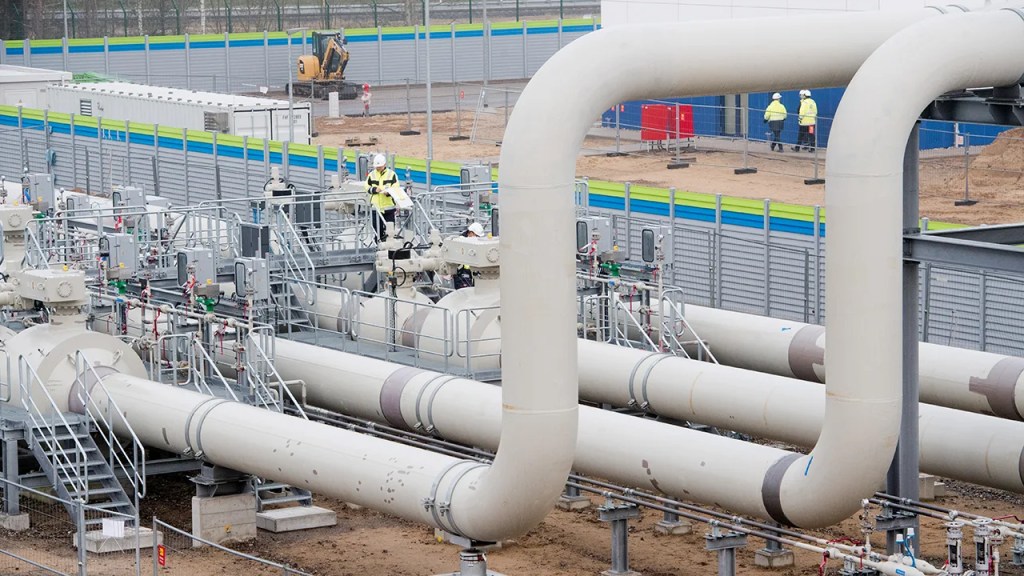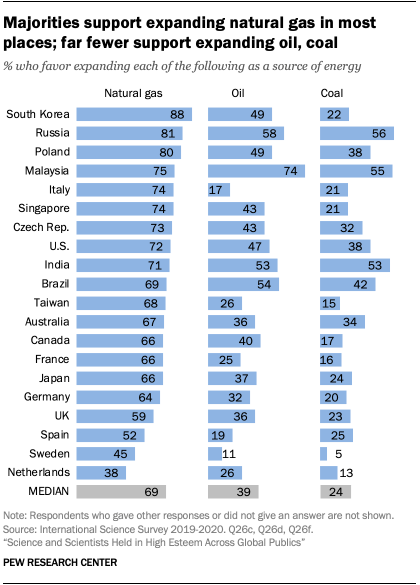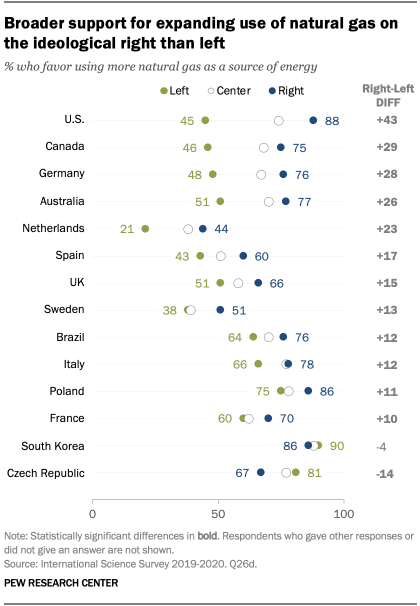
As governments around the world debate the mix of fossil fuel and renewable sources they use to meet their energy needs, public attitudes about natural gas are mostly positive, according to a recent international survey by Pew Research Center.
A median of 69% of adults across the 20 global publics favor expanding the use of natural gas, including about two-thirds or more in 16 of those places. The survey was conducted between October 2019 and March 2020 in the United States, Canada, Brazil, Russia and other places in Europe and the Asia-Pacific region.
Public support for expanding use of natural gas stands in contrast to the much smaller shares of adults who express support for expanding oil (median of 39%) and coal (median of 24%). And it comes even as many people in the surveyed areas say the priority for energy production should be increasing renewable sources. A median of 93% of adults in the surveyed areas support using more solar power, for example, and a median of 87% say the same about wind power.
This analysis is based on a survey conducted across 20 publics from October 2019 to March 2020 across Europe, Russia, the Americas and the Asia-Pacific region. The surveys were conducted by face-to-face interviews in Russia, Poland, the Czech Republic, India and Brazil. In all other places, the surveys were conducted by telephone. All surveys were conducted with representative samples of adults ages 18 and older in each survey public.
Here are the questions used for this report, along with responses, and its methodology.
Demand for natural gas has grown internationally in recent years, in part because it has a smaller carbon footprint than coal and other fossil fuels. In Singapore, where the government has promoted increased use of natural gas, consumption has grown about ninefold in recent decades.
In some places, natural gas consumption has expanded as public opinion has turned against nuclear power. In Japan, the 2011 Fukushima Daiichi accident led to government closure of nuclear power plants and a sharp increase in demand for natural gas.
Amid these trends, some renewable energy advocates worry that increased use of natural gas will slow adoption of renewable sources like wind and solar. But support for natural gas is not high everywhere. In the Netherlands, where drilling for natural gas has caused a series of earthquakes since the mid-1980s, support for expanding use of natural gas is the lowest of any of the 20 publics (38% in favor).
In most publics surveyed by the Center, there’s a significant divide by political ideology in views of natural gas, with those on the right usually more supportive than those on the left.
For instance, in Germany, 76% of those who place their views on the ideological right support using more natural gas, compared with 48% of those on the left. The ideological gap is largest in the U.S., where 88% of conservatives – and fewer than half of liberals (45%) – support expanding the use of natural gas.
One factor driving opinion divides stems from the production of natural gas through hydraulic fracturing. In a separate Center survey conducted in May 2020, just 21% of Democrats and Democratic-leaning independents in the U.S. favored more hydraulic fracturing, compared with 56% of Republicans and GOP leaners.
Note: Here are the questions used for this report, along with responses, and its methodology.




